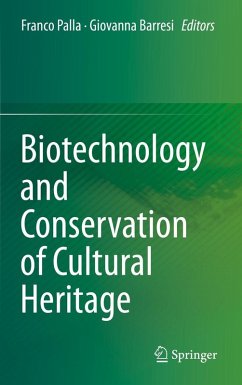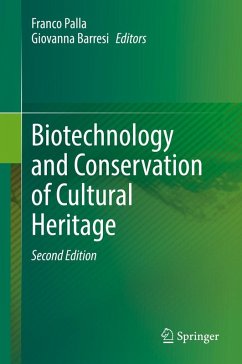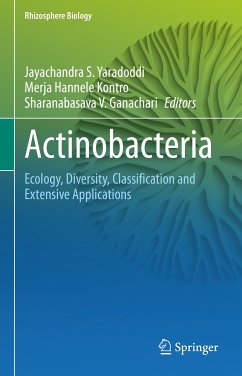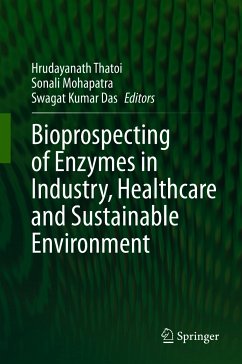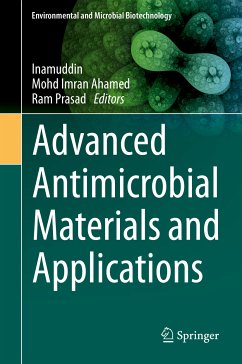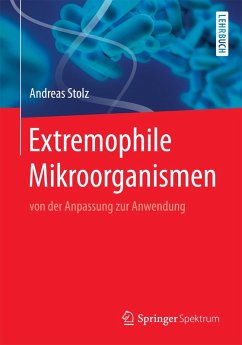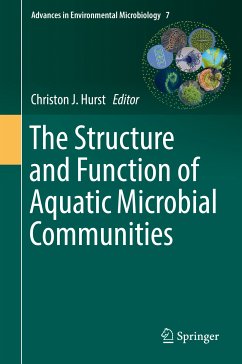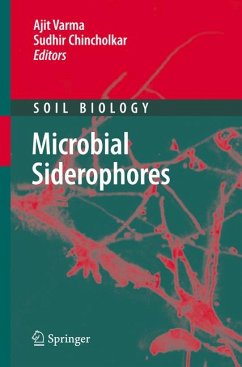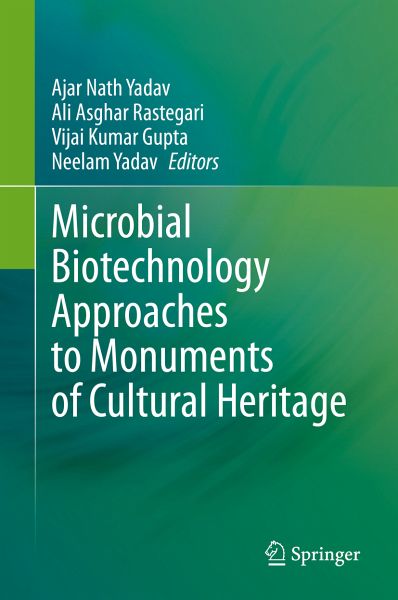
Microbial Biotechnology Approaches to Monuments of Cultural Heritage (eBook, PDF)
Versandkostenfrei!
Sofort per Download lieferbar
80,95 €
inkl. MwSt.
Weitere Ausgaben:

PAYBACK Punkte
40 °P sammeln!
Our country's cultural legacy is one of the world's most diverse, drawing millions of visitors every year to our convents and monuments, and to our museums, libraries, concert halls and festivals. In addition, it is a dynamic trigger of economic activity and jobs. Among the various scientific branches, microbial biotechnology offers an innovative and precise approach to the complexity of problems that restorers face in their daily work.This book discusses a range of topics, including the biodiversity of microbial communities from various cultural heritage monuments, microbial biotechnological ...
Our country's cultural legacy is one of the world's most diverse, drawing millions of visitors every year to our convents and monuments, and to our museums, libraries, concert halls and festivals. In addition, it is a dynamic trigger of economic activity and jobs. Among the various scientific branches, microbial biotechnology offers an innovative and precise approach to the complexity of problems that restorers face in their daily work.
This book discusses a range of topics, including the biodiversity of microbial communities from various cultural heritage monuments, microbial biotechnological cleaning techniques, the role of bacterial fungal communities for the conservation of cultural heritage, and microbial enzymes and their potential applications as biorestoration agents. Written by internationally recognized experts, and providing up-to-date and detailed insights into microbial biotechnology approaches to cultural heritage monuments, the book is a valuable resource forbiological scientists, especially microbiologists, microbial biotechnologists, biochemists and microbial biotechnologists.
This book discusses a range of topics, including the biodiversity of microbial communities from various cultural heritage monuments, microbial biotechnological cleaning techniques, the role of bacterial fungal communities for the conservation of cultural heritage, and microbial enzymes and their potential applications as biorestoration agents. Written by internationally recognized experts, and providing up-to-date and detailed insights into microbial biotechnology approaches to cultural heritage monuments, the book is a valuable resource forbiological scientists, especially microbiologists, microbial biotechnologists, biochemists and microbial biotechnologists.
Dieser Download kann aus rechtlichen Gründen nur mit Rechnungsadresse in A, B, BG, CY, CZ, D, DK, EW, E, FIN, F, GR, HR, H, IRL, I, LT, L, LR, M, NL, PL, P, R, S, SLO, SK ausgeliefert werden.



